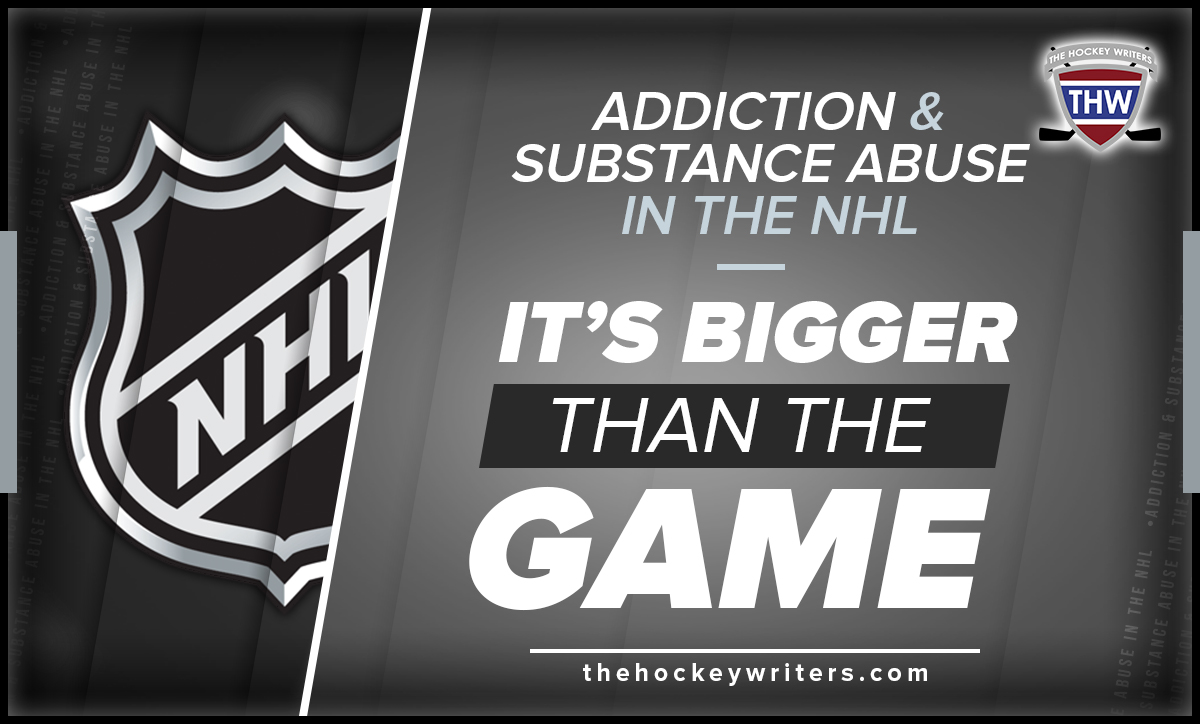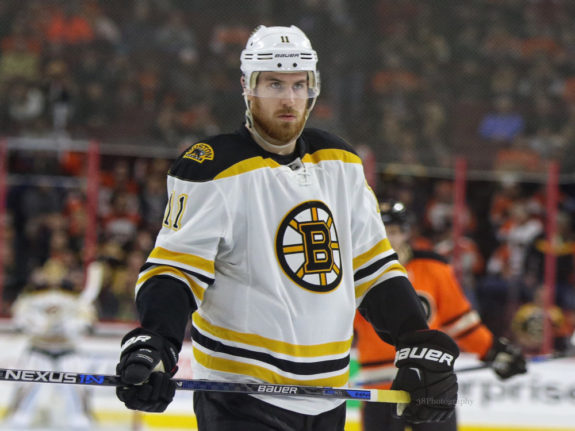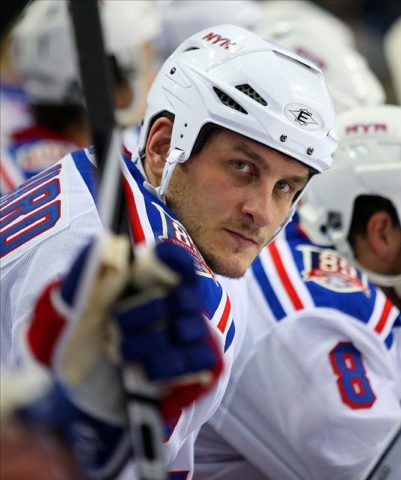Just over two months have passed since former NHL player Jimmy Hayes was found dead at his Milton, Massachusetts, home on August 23. Hayes was a NCAA star who shined for Boston College and won one NCAA championship, and two Hockey East Championships while with the club. He was drafted 60th overall in the 2008 NHL Draft by the Toronto Maple Leafs. Hayes would go on to play 334 NHL games with the Chicago Blackhawks, Florida Panthers, Boston Bruins, and New Jersey Devils, accumulating 109 points (54 goals, 55 assists) over a seven-year career.

We recently learned that according to the Boston Globe, the cause of death was “acute intoxication due to the combined effects of fentanyl and cocaine” (From “Jimmy Hayes’s Family Says Fentanyl Contributed to Death of Former Bruin.” Boston Globe, 18/10/21.) When the official report came out about Hayes’s cause of death, a lump formed in my throat. Just over three years ago, my 16-year-old sister died of an “accidental overdose” when she ingested what she thought was ecstasy during a concert. She never got to graduate high school, and like so many others who have passed, she never got to pursue any of her dreams that she had once envisioned.

We live in a world that tends to judge quickly when it comes to this topic, and there is an unfortunate stigma that surrounds addiction and overdose-related deaths. What people do not understand is that this is an epidemic that has been going on for many years now. Health Canada reported more than 22,000 overdose-related deaths between January 2016 and March 2021. The United States recorded 96,000 overdose deaths in just a 12-month-period. Sadly, these shocking statistics have claimed the lives of far too many people, including hockey players.
Addiction In the NHL
There have been quite a few former and current NHL players who have spoken out about battling addiction. Among them are Ryan Kesler, Kyle Quincey, Zenon Konopka, Derek Sanderson, Bob Probert, Ian White, Rudy Poeschek, Kevin Stevens, Brantt Myhres, Ian Lapierriere, and Bobby Ryan. More than a decade ago, the NHL was reported to have an issue with painkillers, but what has the league done? To this day, several alumni are involved in lawsuits against the league for prescribing copious amounts of painkillers and other substances.
NHL Player Assistance Program
The NHL’s player assistance program was created in 1996, to help players and their families get support for mental health, substance abuse, and other personal matters. Most recently we have seen the likes of Montreal Canadiens netminder Carey Price complete the 30-day program. It has received some positive support from the likes of current Vegas Golden Knights goalie Robin Lehner, who opened up about “the program” in an exclusive interview with The Athletic, stating “I don’t think I would be alive without them. Dan Cronin, Dave Lewis and Dr. Shaw have done so many amazing things for my family and me during this time” (“‘I Could Not Stand Being Alone in My Brain’: Islanders Goalie Robin Lehner Opens up about His Addiction and Bipolar Diagnosis.” The Athletic, 14/2/19).

A legal battle is still being fought by Derek Boogaard’s family against the NHL. Boogaard, a 6-foot-8, 270-pound enforcer with the New York Rangers, was found dead from an “accidental overdose” in his home on May 13, 2011. A U.S. federal judge dismissed a wrongful death lawsuit filed by the Boogaard family, who believed the league was responsible for the addiction their son developed. In the lawsuit, it was revealed that Boogaard had received more than 1,000 prescriptions from his team physicians. Sadly, Boogaard was just one of three enforcers who would pass away in less than four months.
On Aug 15, 2011, former Vancouver Canucks scrapper and fan favourite Rick Rypien, was found dead at his home. Just that summer he had signed a one-year contract with the Winnipeg Jets and was eager to get on the ice. Rypien suffered from severe clinical depression sources say. The last was former NHL enforcer Wade Belak who was found dead at his condo in Toronto, Ontario, on Aug 31, 2011, after committing suicide. During his career, he played 549 games for Colorado, Calgary, Toronto, Florida, and Nashville. He was known as a locker room prankster and a guy that could make anyone laugh. These string of tragic deaths were a complete shock to not only the hockey world but the entire sports industry. It was evident that all three were suffering from mental health-related issues. In the wake of their deaths, NHL commissioner Gary Bettman told media that the league would re-examine their substance abuse and behavioural issue programs.
Related: War on Ice: The Chilling Truth of Enforcers, CTE and Fighting in the NHL
Yet, a decade later, the NHL is still being scrutinized for its lack of action in treating substance abuse, as well as mental health problems within the league. Recently, Lehner has been extremely vocal about the way the league operates its substance abuse and behavioural issue programs, even commenting on social media that teams give players substances without consulting their team physicians.
Is it common for work places to give out benzodiazepines to employees when they travel and ambien ? Should that not be done by doctors or psychiatrist? Asking for a friend 👀 this doesn’t happen in Vegas to be clear. But I know many other teams. I also been in on teams that do?
— Robin Lehner (@RobinLehner) October 3, 2021
How Can The NHL Combat This Problem
In 2005, the NHL introduced a drug testing policy for performance-enhancing drugs. During the summer of 2019 Washington Capitals forward Evgeny Kuznetsov tested positive for cocaine and received a four-year suspension by the International Ice Hockey Federation (IIHF). (From “Evgeny Kuznetsov, Suspended after Positive Cocaine Test, Says, ‘I’m Going to Learn from This.’” Washington Post, 14/9/19.) NHL Deputy Commissioner Bill Daly then put out a statement on behalf of the NHL regarding Kuznetsov’s future in the league.
“Unlike the IIHF, cocaine is not considered a performance enhancing drug and is therefore not a Prohibited Substance under the NHL/NHLPA Performance Enhancing Substances Program. Instead, it is considered a drug of abuse that is tested for and for which intervention, evaluation and mandatory treatment can occur in appropriate cases.”
NHL Deputy Commissioner, Bill Daly
In order for the NHL to deal effectively with this vast and complex issue, it needs to acknowledge that there is more than just a painkiller issue among current and former players. They have the opportunity to implement a strict anti-drug policy that is tailored to help those in need. As hockey culture continues to change for the better every single day, we can continue to offer an outlet to those who are struggling to deal with their inner demons.
The Next Steps
The league needs to reconsider creating and implementing new drug testing policies. NHL players should be tested on a regular basis for illegal substances, and if they test positive, a treatment plan should be provided to them and their families. The “NHL family” needs to assure players, coaches, and families that they are truly supported – no matter the circumstance. After all, the Players Department of Safety is responsible for the health and wellness of all players both physically and mentally. In light of the number of lawsuits that the NHL is currently faced with, they need to make drastic changes now in order to avoid tragically losing more players.